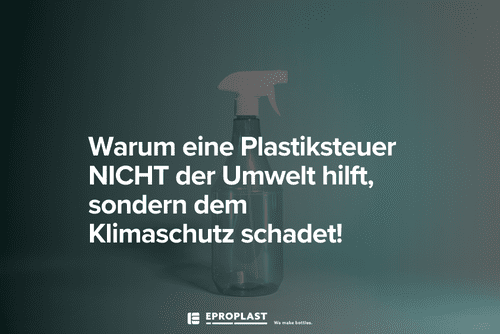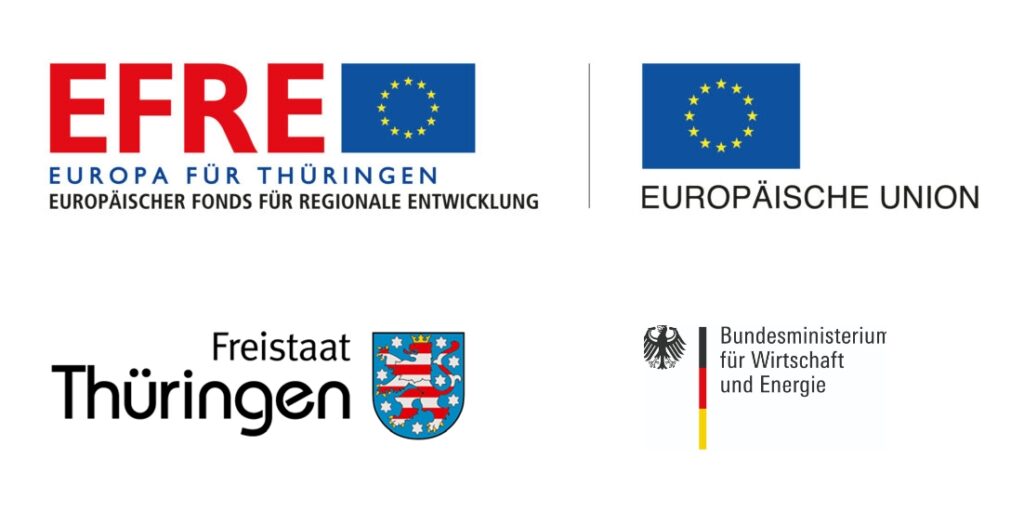How the plastic tax came about and why a plastic tax does not help the environment, but harms climate protection!
The German government wants to introduce a plastic tax to plug the budget gap. This hole in the budget has arisen after the Federal Constitutional Court banned the use of coronavirus funds for environmental protection.
Vorschlag der Regierung zum Stopfen des Haushaltslochs ist, dass eine Plastiksteuer ausschließlich für unrecycelte Verpackungen aus reinem Kunststoff erhoben werden soll. Ziel ist es, die EU-Plastikabgabe in Höhe von 1,4 Milliarden Euro pro Jahr nun auf die „Verursacher“ (Hersteller) umzulegen. Diese EU-Plastikabgabe gibt es bereits seit 2021 und wurde bisher aus dem Staatshaushalt bezahlt.
What exactly is the plastic levy that has been in place since 2021?
The plastic levy is actually a Brexit levy that was introduced after the UK left the EU. The resulting shortfall in the UK's EU contributions was to be made up by increasing contributions from the other member states. In order to successfully implement these increases, they were simply called the plastic levy. This made it look like environmental protection for everyone.
What does the introduction of a plastic tax mean for EPROPLAST?
Passing on the plastic levy to manufacturers would mean that companies in the plastics industry, including EPROPLAST, would have to pay for the consequences of Brexit and the unconstitutional budget management of the German government.
What consequences would a plastic tax have for employers like EPROPLAST?
A further burden on plastics processing companies would have serious consequences following the already increased energy prices. After all, innovations and the expansion of the circular economy require high levels of investment, which are more likely to be halted by announcements such as the plastic tax.
EPROPLAST would be at a major competitive disadvantage as a result of a plastic tax, as this tax would only be levied on plastic packaging and not on other packaging materials. As a result, customers would turn away from plastic packaging due to higher prices and turn to other packaging solutions. Falling sales and loss of customer relationships could be further effects.
Many companies might also consider sourcing PET products abroad at more favourable prices, as this tax is generally not levied there.
What consequences would a plastic tax have for consumers?
A plastic tax would affect the consumer, as companies would have to pass on the costs to the products. The lower income groups would be particularly affected by higher prices, as a further increase in prices would be particularly noticeable for them.
If the plastic levy is financed via the federal budget, i.e. from tax revenue as it has been up to now, the upper income brackets are more likely to be affected due to the tax rates.
What consequences would a plastic tax have for the environment and climate protection?
Further costs for the plastics industry could result in a halt to necessary investments in research, development and the expansion of climate protection. This would be a fatal development for the plastics industry and the future of environmental protection in Germany. After all, Germany has been a global role model for decades with its deposit system for disposable and reusable drinks bottles.
Da die Plastiksteuer nur auf Kunststoffverpackungen erhoben werden soll, wird sich der Trend hin zu anderen Verpackungen, die nicht die gleiche, hohe Recyclingfähigkeit wie Kunststoffe besitzen noch verstärken. Schon lange wird dem Verbraucher eingeredet, dass Glas, Papier oder Tetrapak die umweltfreundlichere Wahl sei. Dies stimmt aber schlichtweg nicht.
What are the major advantages of plastic and PET in particular?
If we take an objective look at the various packaging materials and compare them in terms of recyclability and climate protection, the situation is as follows:
- PET packaging, such as that produced by EPROPLAST, is too 100 % recyclableIn comparison, composite packaging cannot be recycled as the individual layers can no longer be separated from each other. Composite packaging (such as Tetrapack or paper/plastic packaging) must be incinerated or chemically recycled at greater expense.
- Compared to glass, PET has a low melting temperature of approx. 300 °, while glass is melted at approx. 1,400 °, which has an enormous impact on energy consumption.
- PET packaging is also convincing in terms of climate protection thanks to its light weightwhich has a positive effect on the CO2 footprint during transport. PET also protects the environment through its break resistance the resources.
- Soot-free inks, mono-material and packaging that has already been optimised in terms of design make the recyclable material PET is actually the material of the future for packaging with a high contribution to climate protection.
That's why we at EPROPLAST also say NO to the plastic tax!

